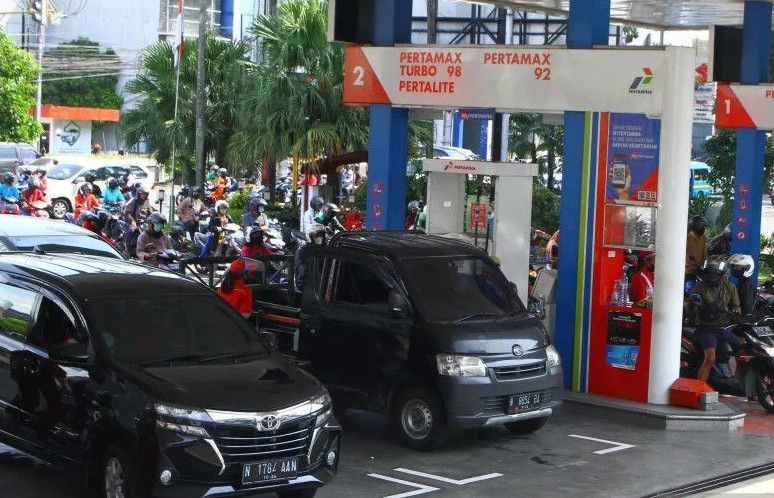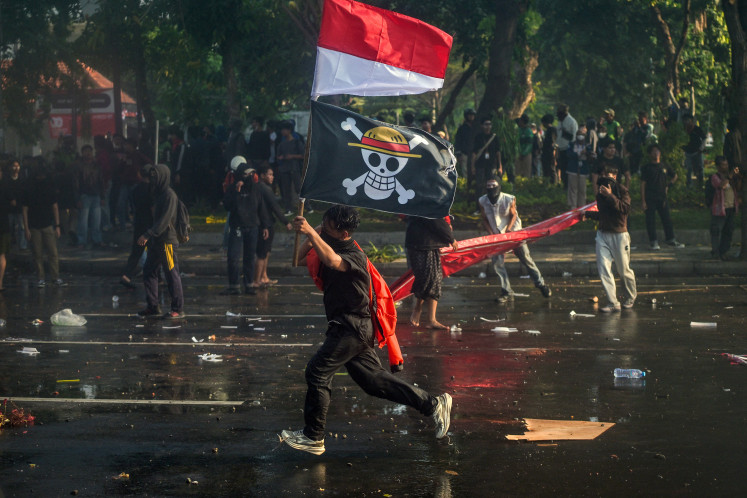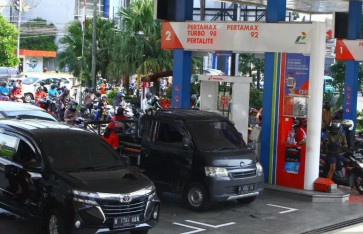Popular Reads
Top Results
Can't find what you're looking for?
View all search resultsPopular Reads
Top Results
Can't find what you're looking for?
View all search resultsJokowi’s subsidy reform: One step backward to buffer consumers
While it might be a step back in subsidy reform, the government has decided to maintain fuel subsidies to creating economic and political turmoil.
Change text size
Gift Premium Articles
to Anyone
W
hen Joko “Jokowi” Widodo assumed the presidency in 2014, oil prices started tumbling after reaching a three-year high of US$100 per barrel. As the price fell to $60 per barrel, it made it easier for Jokowi to reduce fuel subsidies.
The government significantly cut its spending on fuel subsidies from Rp 392 trillion ($27 billion) in 2014 to Rp 166 trillion in 2017, before raising it again to Rp 243 trillion in 2021. As a share of government expenditure, fuel subsidy spending had declined from 22.1 percent to 8.7 percent over this period.
Although the process of reducing the fuel subsidies was slow and prolonged, it was quite an achievement in terms of subsidy reform. If Jokowi has made any genuine and successful economic reforms, it was in reducing fuel subsidies, which expanded the fiscal space by reallocating the amount freed from fuel subsidies to more productive investments, especially infrastructure and human resource development.
Energy prices were moving higher even before Russia invaded Ukraine, after the COVID-19 pandemic subsided and global recovery pushed up demand. Commodity prices have skyrocketed over the last two years and are currently at levels we last saw around 10 years ago.
The price of West Texas Intermediate, for instance, is now at $115.30 per barrel, while it was only $21.20 per barrel in April 2020. But the worst is likely yet to come. When China’s lockdowns ease, oil demand will surge to push prices up further again.
Indonesia has benefited greatly from the steep prices of oil, gas, coal, nickel and palm oil. This development will significantly alter the government’s outlook on the 2022 state budget.
The government’s fiscal standing has been very strong this year. Up to April 2022, it has accumulated a budget surplus of Rp 104 trillion, more than 10 times the surplus of the previous month.



















